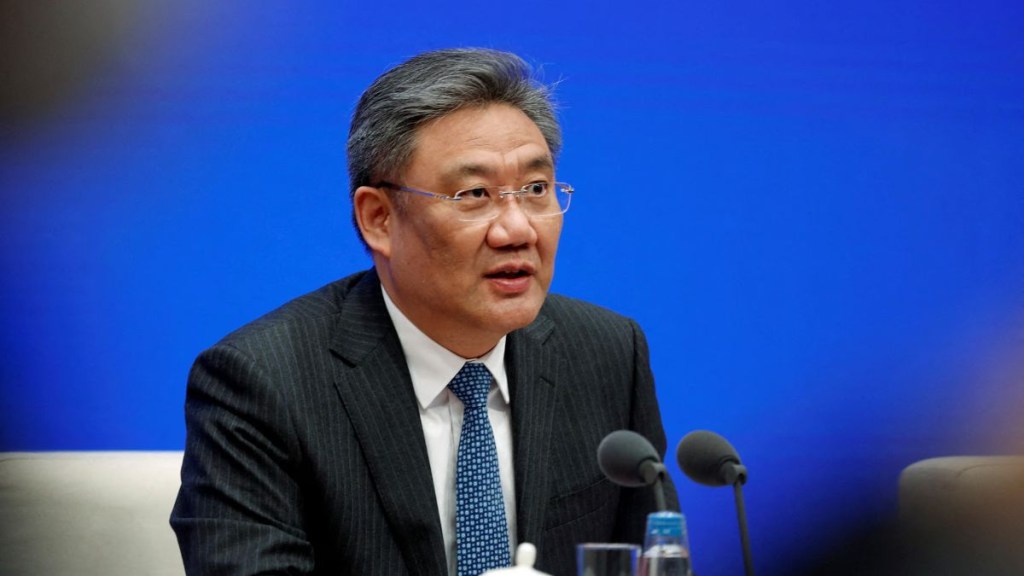China’s Commerce Ministry on Monday dismissed US President Donald Trump’s claims that it had violated the consensus reached in Geneva talks. In an official statement, the ministry said that China had “taken seriously, strictly implemented, and actively upheld the consensus reached at the talks with the US in Geneva.”
China slammed the US for making what it called “bogus charges” and for “unreasonably” accusing China of breaching the agreement. Its commerce ministry reiterated that, “China firmly rejects these unreasonable accusations.” Further, it was brought up that the Trump administration “successively introduced a number of discriminatory restrictive measures against China”, keeping in context the exponential tariff rate, measures taken against Chinese students visas in the US along with the AI chip control export guidelines.
This comes after the Trump 90-day tariff pause. Thus, both Beijing and Washington last month agreed to temporarily slash staggeringly high levies after talks between top officials in Geneva. However, US Commerce Secretary Howard Lutnick said Beijing was “slow-rolling the deal”, in comments to Fox News.
China’s final response
“We urge the US to meet China halfway, immediately correct its wrongful actions, and jointly uphold the consensus from the Geneva trade talks,” the ministry said. If not, “China will continue to resolute and forceful measures to uphold its legitimate rights and interests,” it added.
While there were no explicit mentions of why accusations were made, US Trade Representative Jamieson Greer complained that China had not sped exports of critical minerals needed for technological development. Trump’s comments about the “accusation” came a day after US Treasury Secretary Scott Bessent said talks with China on trade had stalled and suggested that a call between Trump and Xi might be necessary to break the deadlock.
The escalating tensions signal renewed volatility in U.S.–China trade relations, with both nations trading blame over stalled progress. As Washington pressures Beijing for compliance, and China defends its stance with threats of retaliatory action, the fragile truce reached in Geneva appears increasingly at risk, raising global economic and diplomatic concerns.

